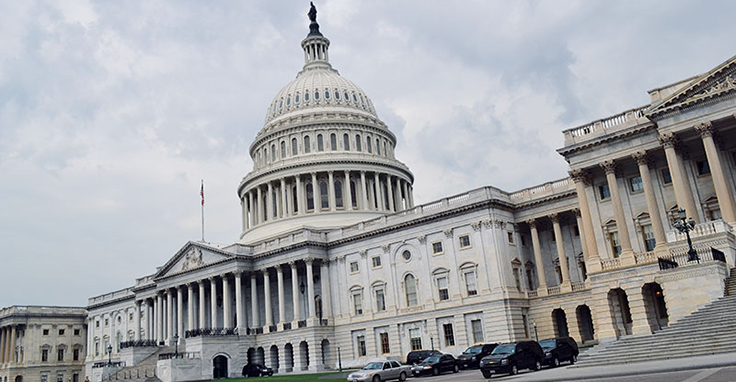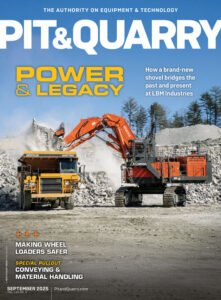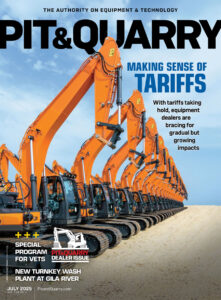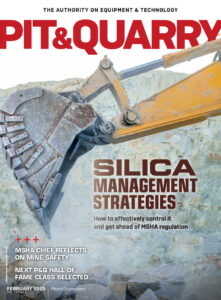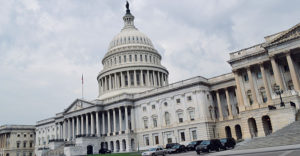
After the U.S. Senate passed a $1 trillion infrastructure bill Tuesday by a 69-30 vote – with 19 Republican senators voting for the bill, including Senate Minority Leader Mitch McConnell (R-Kentucky) – several leaders of organizations tied to the aggregate industry voiced their excitement.
Along with the excitement, however, are calls for the House to quickly pass the bill and put it in front of President Joe Biden. The House is currently in recess until Sept. 20.
“NSSGA (the National Stone, Sand & Gravel Association) commends the Senate for working together in a bipartisan fashion to quickly move the Infrastructure Investment & Jobs Act out of the chamber,” says Michael Johnson, president and CEO of NSSGA. “The bill provides targeted new spending over five years to improve our overused and outdated transportation systems across the U.S. It’s vital for a final bill to be passed before the Sept. 30 deadline of the FAST Act.”
If fully passed, the bill would provide $550 billion in new spending. Of the total $1 trillion in the bill, $110 billion would be dedicated to roads, bridges and transportation programs.
An additional $66 billion would go toward passenger and freight rail, with another $65 billion being invested in broadband. Water systems would receive $55 billion in funding, public transit would get $39 billion and airports $25 billion.
“This bipartisan bill represents a giant step forward in bringing greater access and mobility to the American public,” says Audrey Copeland, president and CEO of the National Asphalt Pavement Association. “[It] brings our highways and roads to good condition, sparks ongoing innovation in the asphalt pavement industry and secures good-paying jobs for hundreds of thousands of American workers.”
Stephen Sandherr, CEO of the Associated General Contractors of America (AGC), echoes the sentiments put forth by Copeland and Johnson. Sandherr says the investments will help generate new demand for construction services, equipment and materials while creating jobs and making the economy more efficient and competitive.
What’s next
Sandherr adds that delaying the vote in the House would hurt the economy and those job opportunities, though.
“Unfortunately, some members of the House want to delay action on the bipartisan measure until passing an unrelated, partisan spending bill,” Sandherr says. “The last thing Washington should do is hold a much-needed, bipartisan infrastructure bill hostage to partisan politics. Delaying action on the infrastructure measure will hurt the economy and deny workers opportunities to start high-paying construction careers.”
“It is time to put people back to work instead of paying them to stay home,” Sandherr adds. “This is why we are urging the House to quickly pass the bipartisan infrastructure bill and send it to the president for signature.”
In terms of the “unrelated partisan spending bill,” Sandherr is referring to a $3.5 trillion spending measure put forward by Senate Democrats. The bill focuses on a number of issues, including, health care, antipoverty, climate change, education and child care, among several others.
According to CNBC, the Senate voted along party lines (50-49) immediately following the infrastructure bill vote to enter into a budget resolution. This would allow the spending bill to be passed without a Republican vote.
“This [infrastructure] legislation only happens once in a generation, but it is still not finished,” Johnson says. “We ask the House to come together and answer the call to invest in our crumbling infrastructure network, therefore stimulating an economic opportunity for job creation and economic success. NSSGA now urges all members of Congress to quickly act and approve this critical effort.”

